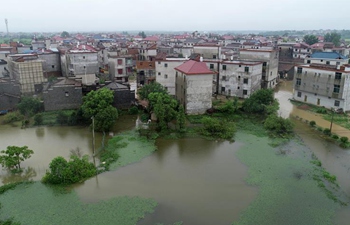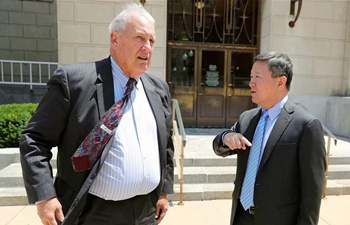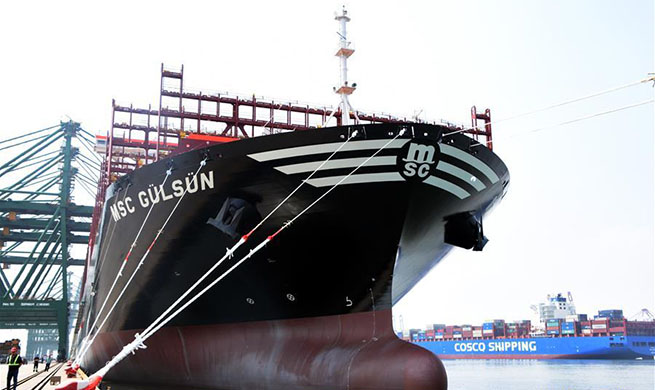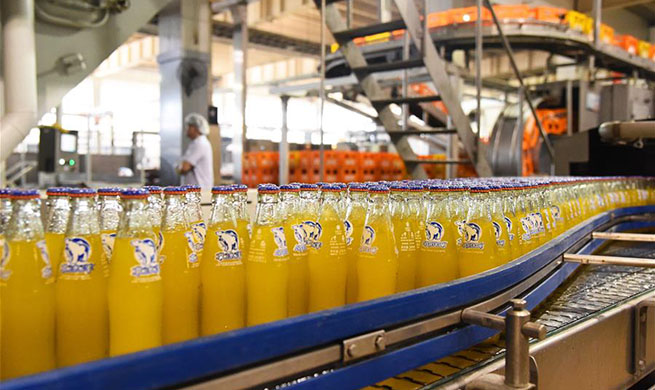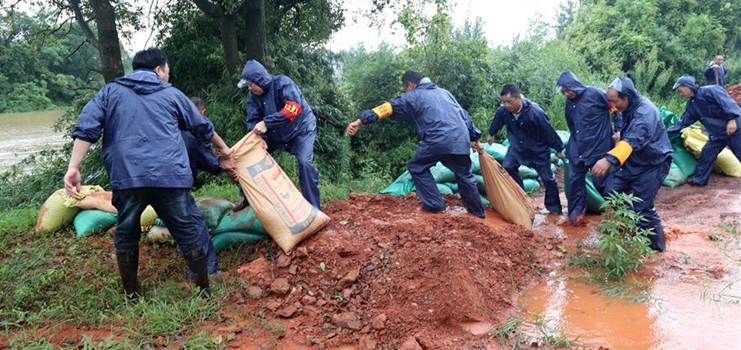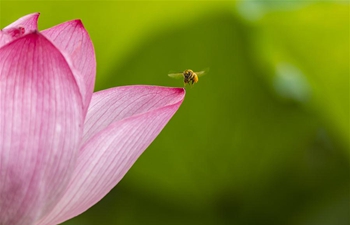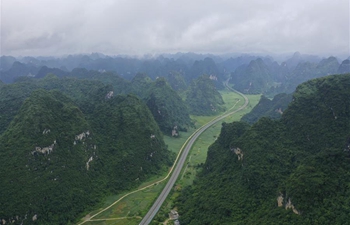BEIJING, July 9 (Xinhua) -- Liu Xingang flies more than 800 km from Beijing to Yuncheng, Shanxi Province every week. He is not a frequent flying businessman, instead a scientist focusing on air pollution research.
Liu, an associate professor from Beijing Normal University, is welcomed by local government officials in Yuncheng as an advisor for air pollution control. He also assigned a team of doctoral students in the city to conduct on-the-spot investigations of the air quality.
Located in the Fenwei Plain, one of the key battlefields of China's war against air pollution, the city boasts a heavy chemical industry and serious air pollution.
Liu's team used cutting edge monitoring equipment and satellite data to obtain the spatial and temporal distribution of PM2.5 as well as precise pollution sources.
"The satellites can clearly show where the smoke-emitting chimneys are located and which company is illegally discharging pollutants, offering science-based evidence for local governments to take action," Liu said.
Through analyzing the yearly distribution of air pollutant, Liu's team can predict the trend of air pollution and conduct early warning for the city. They also help make air pollution control methods tailored to a particular company, an industry or a district.
"We have suggested new production methods to promote the green transformation of the city's coal coking industry as it has become the city's main source of pollution," Liu said.
Liu is one of the scientists at the forefront of China's war against air pollution. In the "battle for blue skies," local government officials are seeking science-based air pollution control methods that tailor to their own cities, and the scientific community has become a key player in policy formulation.
The city of Xianyang in Shaanxi Province was bewildered by air pollution. Dai Yongqiang, deputy head of Qindu District of Xianyang said the district was fined eight million yuan (about 1.16 million U.S. dollars) for poor air pollution control.
"We had great passion in combating air pollution but failed to find scientific and effective methods," Dai said.
The district then turned to experts for help, inviting a team comprised of eight environmental science specialists to offer solutions and refine air quality monitoring to each street.
"With the help of the experts, we refined our air pollution control methods and had never been fined again," Dai said.
Li Ganjie, Minister of Ecology and Environment, said at an air pollution control conference that China has gathered more than 1,500 experts to set up an air pollution control research center. One of the important tasks is to send teams of experts to key cities to guide and support local pollution control.
Expert teams have been sent to 28 cities in the Beijing-Tianjin-Hebei region to develop customized plans as well as coordinate their efforts on air pollution in the region. The application of the latest technology, such as unmanned aerial vehicles, satellite remote sensing and big data have been enhanced in the inspection.
Scientists in the frontline of air pollution control are also empowered by China's fast development in science and technology.
Chinese Earth observation satellites, including the Gaofen-5, were officially put into service in March. As the first China-developed satellite that can monitor air pollution, it can dynamically reflect the state of air pollution in China through the monitoring of air pollutants, greenhouse gases, and aerosols. It also helps reduce the reliance on air pollutants data generated by foreign satellites.
Advanced information technology also helped. Scientists in Xi'an Jiaotong University have set up a research center for environmental data and an online monitoring network that gathers data on pollutant sources. The big data in the system will support more precise and effective control of air pollution.
According to Cao Junji, director of the Institute of Earth Environment, Chinese Academy of Sciences, the effect of science and technology on pollution control is multiplying.
"China should further increase its investment in science and technology and cultivate the strength of scientists in air pollution control," Cao said.
Liu said although China has seen a rapid improvement in the country's overall air quality, many local governments are not relaxing their efforts and are calling for scientists' help in their battle against air pollution.
"Through walking out of the lab and into the frontline of air pollution control, we are also gathering case samples and data for future research. That is win-win cooperation," Liu said.





